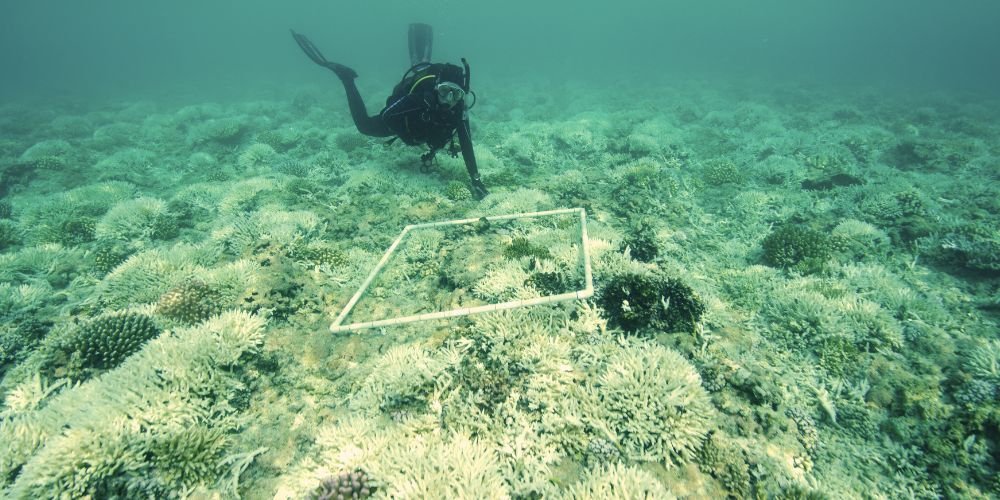Marine biology research is a gateway to understanding the vast and diverse ecosystems that thrive beneath the ocean’s surface. This field of study explores the intricate interactions between marine organisms, their environments, and the myriad factors shaping ocean ecosystems. From uncovering the secrets of deep-sea creatures to studying coral reef resilience, marine biology research plays a pivotal role in unraveling the mysteries of the marine world. In this article, we embark on a journey to explore the importance of marine biology research, the cutting-edge techniques driving scientific discovery, and the implications for the conservation and management of marine resources.
Understanding Marine Biology Research
Marine biology research encompasses various disciplines and topics, including ecology, physiology, genetics, behavior, and conservation. Scientists studying marine biology aim to understand the structure and function of marine ecosystems, the diversity of marine life, and the processes driving ecological dynamics in the ocean environment. Marine biology research is conducted through field studies, laboratory experiments, and computational modeling, utilizing various techniques and methodologies to address complex scientific questions and challenges.
Field Studies
Field studies are crucial in marine biology research. They allow scientists to observe marine organisms in their natural habitats and investigate ecological processes and interactions. Field researchers may conduct surveys, experiments, and monitoring programs in diverse marine environments, such as coral reefs, estuaries, deep-sea vents, and polar seas, to collect data on species distributions, population dynamics, and ecosystem dynamics. Field studies provide valuable insights into marine organisms’ behavior, ecology, and adaptation to their environments.
Laboratory Experiments
Laboratory experiments enable marine biologists to control environmental variables and study specific aspects of marine biology under controlled conditions. Researchers may conduct experiments on marine organisms in aquaria, mesocosms, or controlled environments to investigate physiological responses to environmental stressors, reproductive behavior, genetic variation, and ecological interactions. Laboratory studies complement field observations and provide insights into the underlying mechanisms driving biological processes in marine organisms.
Computational Modeling
Computational modeling is an essential tool for marine biology research. It allows scientists to simulate complex ecological systems, predict ecosystem dynamics, and assess the impacts of environmental changes on marine organisms and ecosystems. Mathematical models, such as population dynamics, food web, and ecosystem models, integrate biological, physical, and chemical processes to simulate the behavior and interactions of marine populations and communities. Computational modeling helps researchers understand the drivers of ecosystem change and inform management strategies for marine conservation and resource management.
Advancements in Marine Biology Research
Recent advancements in technology and methodologies are driving innovation and expanding the possibilities for marine biology research.
Molecular Techniques
Molecular techniques, such as DNA sequencing, genomics, and metagenomics, are revolutionizing marine biology research by providing insights into the genetic diversity, evolutionary history, and functional traits of marine organisms. These techniques enable scientists to identify species, study population genetics, and explore microbial communities in marine environments, shedding light on the drivers of biodiversity and ecosystem function in the ocean.
Remote Sensing and Imaging
Remote sensing and imaging technologies, such as satellite remote sensing, underwater cameras, and acoustic imaging, enhance our ability to observe and monitor marine ecosystems from space to the seafloor. Satellite sensors can map ocean temperature, chlorophyll concentration, and sea surface height, providing information on oceanographic processes and ecosystem dynamics at regional and global scales. Underwater cameras and acoustic imaging systems enable high-resolution imaging of marine habitats, species distributions, and behavior, facilitating ecological studies and conservation efforts in diverse marine environments.
Citizen Science and Collaborative Research
Citizen science initiatives and collaborative research projects engage the public and stakeholders in marine biology research, fostering collaboration, data sharing, and knowledge exchange across communities. Citizen scientists contribute to data collection, monitoring, and observation programs, providing valuable data on species distributions, habitat changes, and environmental trends in the marine environment. Collaborative research projects bring together scientists, policymakers, industry stakeholders, and local communities to address complex marine biology research and conservation challenges, fostering interdisciplinary approaches and innovative solutions to pressing environmental issues.
Applications of Marine Biology Research
Marine biology research has diverse applications, including conservation, fisheries management, aquaculture, and pharmaceutical development.
Conservation and Biodiversity
Marine biology research informs conservation efforts to protect and restore marine biodiversity, habitats, and ecosystems. Scientists study endangered species, vulnerable habitats, and ecological processes to identify conservation priorities, develop management strategies, and establish marine protected areas. Research on coral reef resilience, mangrove restoration, and marine protected areas management contributes to the conservation and sustainable use of marine resources for future generations.
Fisheries Management and Aquaculture
Marine biology research supports sustainable fisheries management and aquaculture practices by studying fish populations, reproductive biology, and trophic interactions in marine ecosystems. Scientists assess fish stocks, evaluate fishing impacts, and develop fishery management plans to ensure the long-term viability of commercial fisheries and protect marine biodiversity. Research on aquaculture techniques, genetic breeding, and sustainable seafood production helps meet the growing global demand for seafood while minimizing environmental impacts and conserving wild fish stocks.
Biomedical Discoveries and Pharmaceutical Development
Marine biology research contributes to biomedical discoveries and pharmaceutical development by studying marine organisms’ potential medicinal properties and bioactive compounds. Scientists explore marine biodiversity, chemical ecology, and natural product chemistry to discover new drugs, antibiotics, and therapeutic agents from marine organisms, such as sponges, algae, and marine microbes. Research on marine natural products holds promise for treating diseases, combating antibiotic resistance, and developing novel pharmaceuticals for human health and well-being.
Challenges and Future Directions
Marine biology research faces numerous challenges, including habitat degradation, overfishing, climate change, and limited funding and resources.
Climate Change Impacts
Climate change significantly threatens marine ecosystems, altering ocean temperature, acidity, and circulation patterns and impacting marine biodiversity and ecosystem functioning. Marine biology research is needed to understand the impacts of climate change on marine organisms, habitats, and ecosystems and develop adaptation strategies to mitigate the effects of warming oceans, ocean acidification, and extreme weather events on marine life.
Habitat Degradation and Pollution
Habitat degradation, pollution, and overexploitation of marine resources threaten the health and resilience of marine ecosystems worldwide. Marine biology research is essential for assessing the impacts of human activities on marine biodiversity, identifying sources of pollution, and developing remediation measures to restore degraded habitats and mitigate pollution impacts on marine life. Research on marine pollution, plastic debris, and microplastic pollution is critical for protecting marine ecosystems and conserving marine biodiversity for future generations.
Funding and Resources
Securing adequate funding and resources for marine biology research is essential for addressing pressing environmental challenges and advancing scientific knowledge of marine ecosystems. Many marine biology research projects suffer from limited funding, staffing shortages, and infrastructure constraints, hindering their ability to conduct long-term studies, monitor marine biodiversity, and implement conservation measures. Increased investment in marine biology research is needed to support interdisciplinary research, capacity building, and technology development for sustainable ocean management and conservation.
Conclusion
Marine biology research is essential for understanding the complexity and diversity of marine ecosystems, addressing pressing environmental challenges, and informing conservation and management efforts to protect marine biodiversity and sustain ocean resources. By studying marine organisms, habitats, and ecosystems, scientists can unlock the secrets of the marine world, discover new species, and develop innovative solutions to safeguard the health of our oceans for future generations. As we continue to explore and study the marine environment, the journey of marine biology research is guided by curiosity, discovery, and stewardship, ensuring a healthier and more resilient ocean for all.





